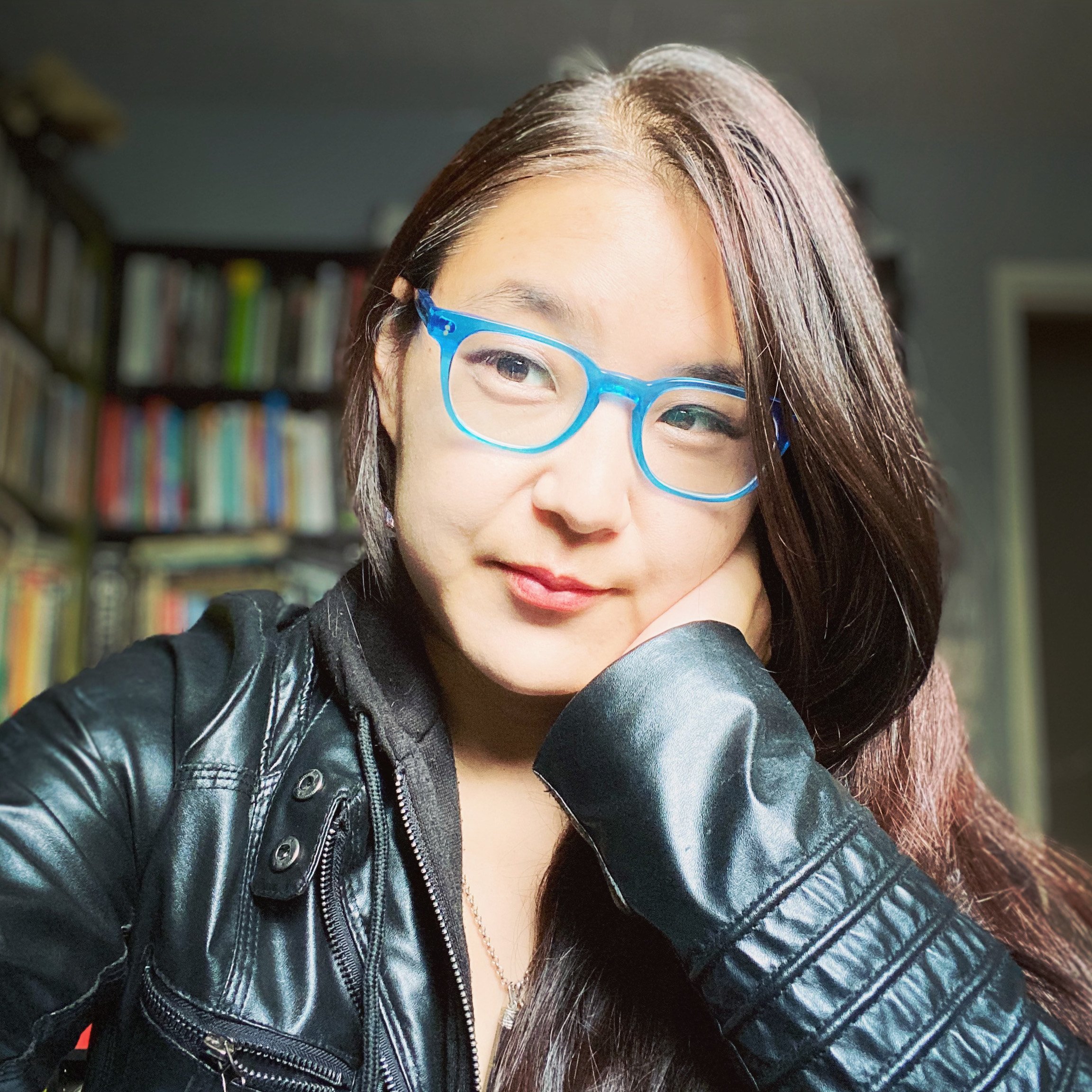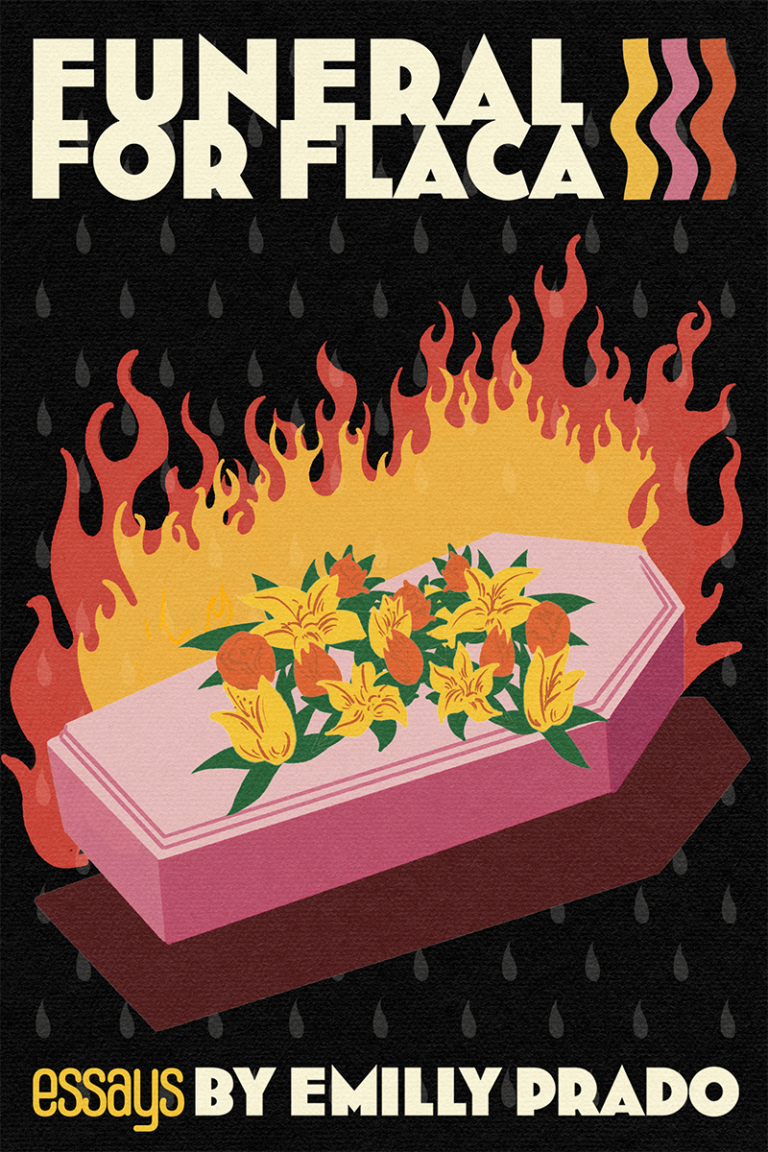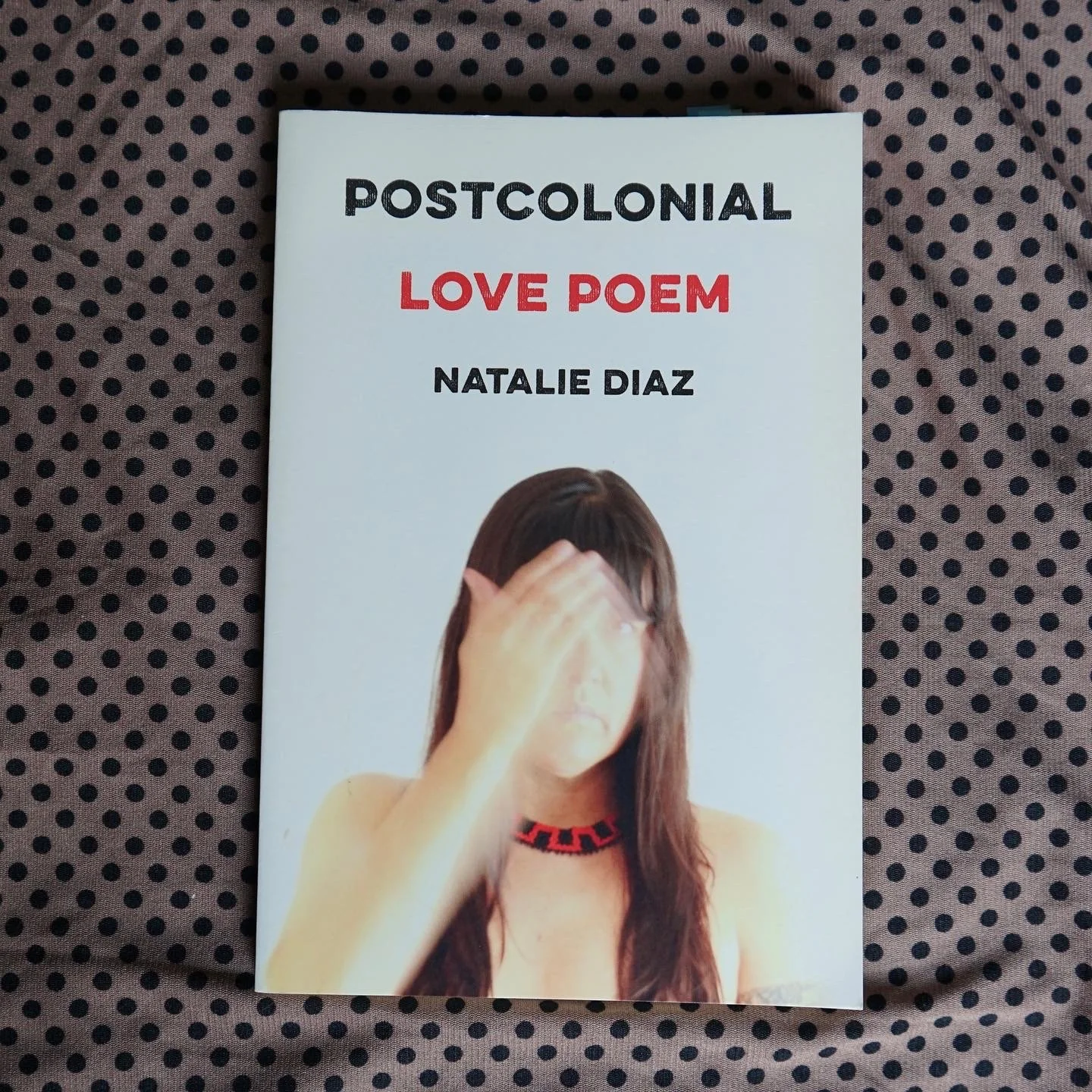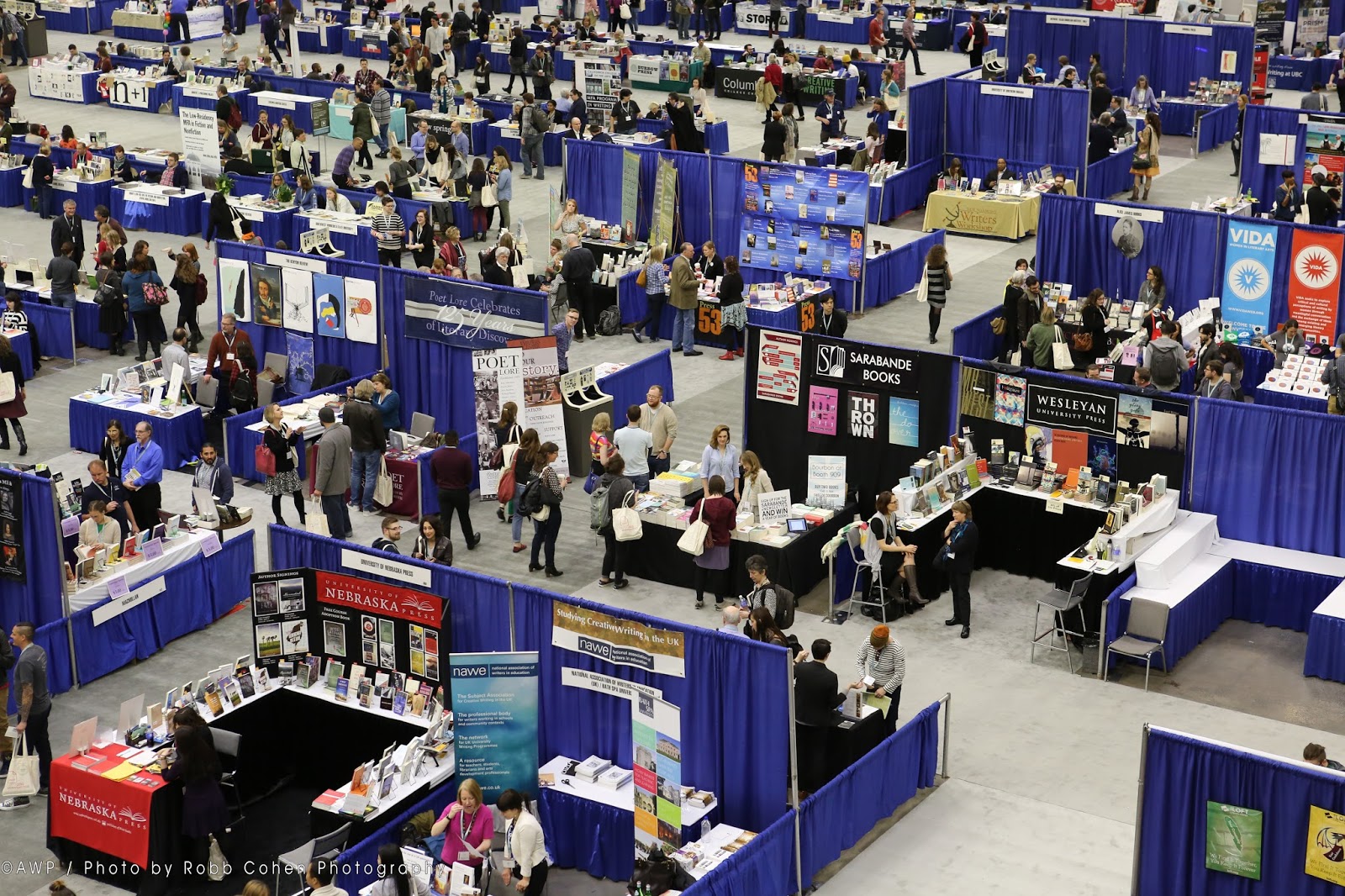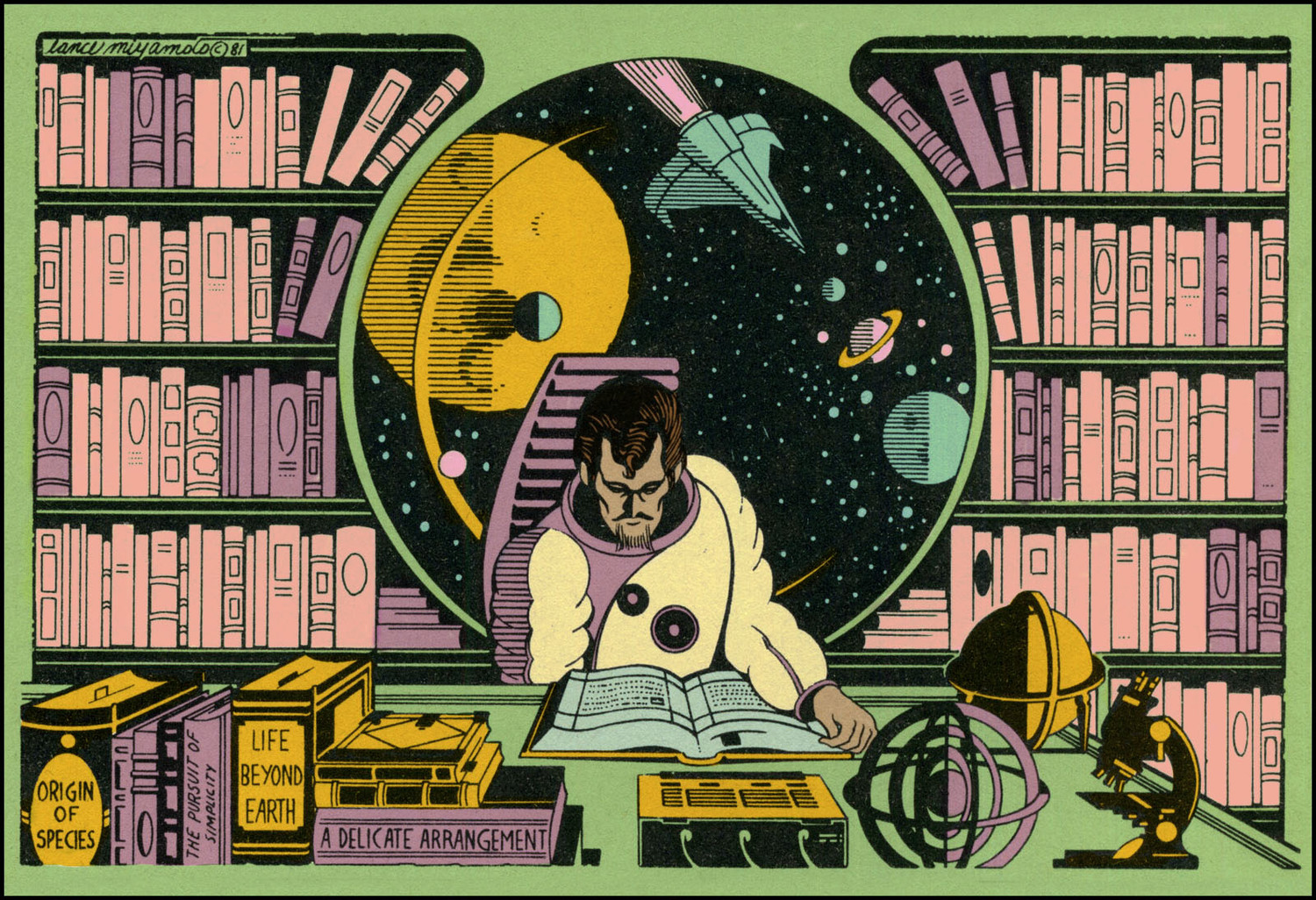I recently learned that when Octavia Butler moved to the Seattle area after her mother's death, she brought with her 300 boxes of books, a portion of a collection she had been building since she was a child. The above photo is her in 1986, before that move, and the shelves already look packed. Last November, I embarked on a similar cross-state move, hauling around 900 books (34 boxes) to Portland, Oregon area after clearing out my old storage unit in Los Angeles. A number of people had asked if it was really worth the effort and money to move my books. Some people questioned whether I really "needed" all of them. Others wondered why I didn't just ditch the physical copies, get with the modern era, and just replace them all with digital copies and eBooks. And yet, there were others, mostly fellow writers, who nodded and approved of my efforts to reunite with my books, to bring us all under the same roof again.
It's hard to explain exactly why having a personal library is so valuable -- and why it is particularly valuable to a person of color (writer or reader) to build a library for oneself. Here are a few ways of thinking about the value and purpose of a personal library -- and what it can enable in ourselves.
1. The Library as a Reflection of Ourselves
“We can imagine the books we'd like to read, even if they have not yet been written, and we can imagine libraries full of books we would like to possess, even if they are well beyond our reach, because we enjoy dreaming up a library that reflects every one of our interests and every one of our foibles--a library that, in its variety and complexity, fully reflects the reader we are.” ― Alberto Manguel
Perhaps the most natural and obvious way of thinking about a library, is that like any collection, a collection of books reveals a great deal about the passions, interests, anxieties, and aspirations of the collector. In a similar fashion, the gaps in a collection also reveal what we do not know or have not made a priority in our lives. My father, a professional librarian, often said that when visiting someone at their home for the first time, you should always check out their bookcases. What books do they keep on their shelves? Have they been read or are they just for display? (Looking at you IKEA). How much use do the books seem to get?
A personal library not only reveals what types of narratives, knowledge, and beauty we think are worth investing in and holding onto, it also serves as a way in which we build a model of the universe as we understand it. A library's very arrangement can be used to affirm certain hierarchies and relationships, to privilege some texts over others, and to position ourselves in relation to all these different voices. Our personal library is a type of argument -- a case we're making about ourselves in our own eyes and in the eyes of those we expect will encounter it. With every purchase and acquisition, we are saying to others (and to ourselves), "I am the type of person who owns this type of book." At the same time, whether or not those books get read is also revealing, as it betrays whether or not we're active consumers of the knowledge and narratives we hoard (as opposed be being simply Smaug-like hoarders of a wealth we count, but cannot spend).
When you look over your own library, what do you see? Is it broad and diverse in subject matter, genre, and form? Whose voices and experiences are represented -- and whose voices are missing? Is your library narrow in scope, focused on a particular time or topic? How do you group or organize things -- by author, by subject, by publisher, by color, or some other sorting factor -- or none at all? De-Canon's physical archive is largely organized by size -- whatever books fit into a given book box/case are collected together based on size, which means that traditional ways of ordering breakdown and destabilize conventional groupings by category, author, or genre. As a project to challenge and resist canon and category, this makes sense -- but it also makes it difficult to navigate and hard to locate specific titles. Even if you come to the De-Canon archive with a title or author in mind, you find yourself of necessity wading through volumes and volumes of books representing topics, voices, and genres you did not originally anticipate encountering. You usually find something else of interest even though you weren't looking for it in the first place.
How we organize our books tends to be a reflection of how we organize our own sense of self and the information we gather about the world. Do we wish to see these texts as an accumulation of voices and authored narratives where who is speaking is important -- or are these books collected around an effort to understand a set of ideas and questions? (For more thoughts on organizing, try this Lit Hub article).
2. The Library as Sanctuary and Refuge
“When I look back, I am so impressed again with the life-giving power of literature. If I were a young person today, trying to gain a sense of myself in the world, I would do that again by reading, just as I did when I was young.” — Maya Angelou
Beyond serving as an extension of our selves and our passions, a personal library can also function as a sanctuary -- a safe space which has been constructed through our careful curating to shelter us from a larger world of institutions, literary canons, and narratives that threaten to devalue what we love and erase our experiences and passions from the larger record. Surrounded by the books of our choosing, we can find solace, inspiration, and connection. Not only can we can feel affirmed and buoyed by what we read and view around us, but within our chosen literary refuge we can find the tools we need to survive and thrive in a sometimes hostile world.
“If one reads enough books one has a fighting chance. Or better, one’s chances of survival increase with each book one reads.” — Sherman Alexie
In refuge of our books, our survival library becomes alternatively a place of learning, a place of worship, a place of mourning, and a place of celebration. Each book, a mentor, a friend, a champion in our time of need. Immersing ourselves in these voices, we find that we are not alone in our struggles.
“You think your pain and your heartbreak are unprecedented in the history of the world, but then you read. It was books that taught me that the things that tormented me most were the very things that connected me with all the people who were alive, or who had ever been alive.” — James Baldwin
For many POC readers and writers, there is a specific value in collecting books by writers of color -- doing so allows our libraries to become a means through which we can create and preserve the literary world that we have not seen represented in public and university libraries, in classrooms, or in the bookstores around us. Having their voices with us reminds us that we are part of a much larger narrative of struggle and triumph, and encourages and inspires us to write ourselves into that growing collection.
3. The Library as Revolutionary Act
Building a personal library can also be a revolutionary act -- at the very least, when we take on the role of curator, we can choose to resist literary convention and tradition, turning expectations on end, choosing to celebrate and associate writers and work that might be otherwise passed over or pigeon-holed in one way or another. In essence, what we assemble together, how we arrange it, and what we center in it all become part of transforming the ways we think about literature and literary tradition.
With this revolutionary lens, what then is a library? In a conversation about this topic earlier this week, it occurred to me that a library becomes a revolutionary act when we think of it as an army of voices, experiences, and knowledge which we have marshaled together to aid us in our efforts to dismantle the systems that oppress us. Each purchase and acquisition becomes an opportunity to recruit and enlist a powerful ally. Each book is more than an object, but also an act of defiance against the world that would erase us and stories we would tell.
Most likely what's revolutionary for you is not the same thing as what's revolutionary for me. But each library, whether it is an assemblage of three or four books that you can carry in a backpack or an archive that fills many rooms in a house, is vital in the same way that it asserts the importance of what we choose to keep, of what endures move after move, of what we hold sacred. Our libraries sustain us -- and in time, we hope, will sustain those who come after us. To build a library is to imagine a future and to equip those who encounter your library (you, your community, and your posterity) with the tools to bring that future into reality. It is to dare to dream of the books not written which will take their place along side all that you've acquired along your way.
Next week, we'll be featuring a showcase of writers of color and their libraries, as well as some of their thoughts on why owning books (especially the work of writers of color) has been so important to them.
If you'd like to participate, email us your thoughts -- and a shelfie (picture of your with your library) -- to contact@de-canon.com or respond to this tweet.
Neil Aitken is the author of two books of poetry, Babbage's Dream (Sundress 2017) and The Lost Country of Sight (Anhinga 2008), winner of the Philip Levine Prize. He is the founding editor of Boxcar Poetry Review, the administrator of Have Book Will Travel, and co-director of De-Canon: A Visibility Project.





